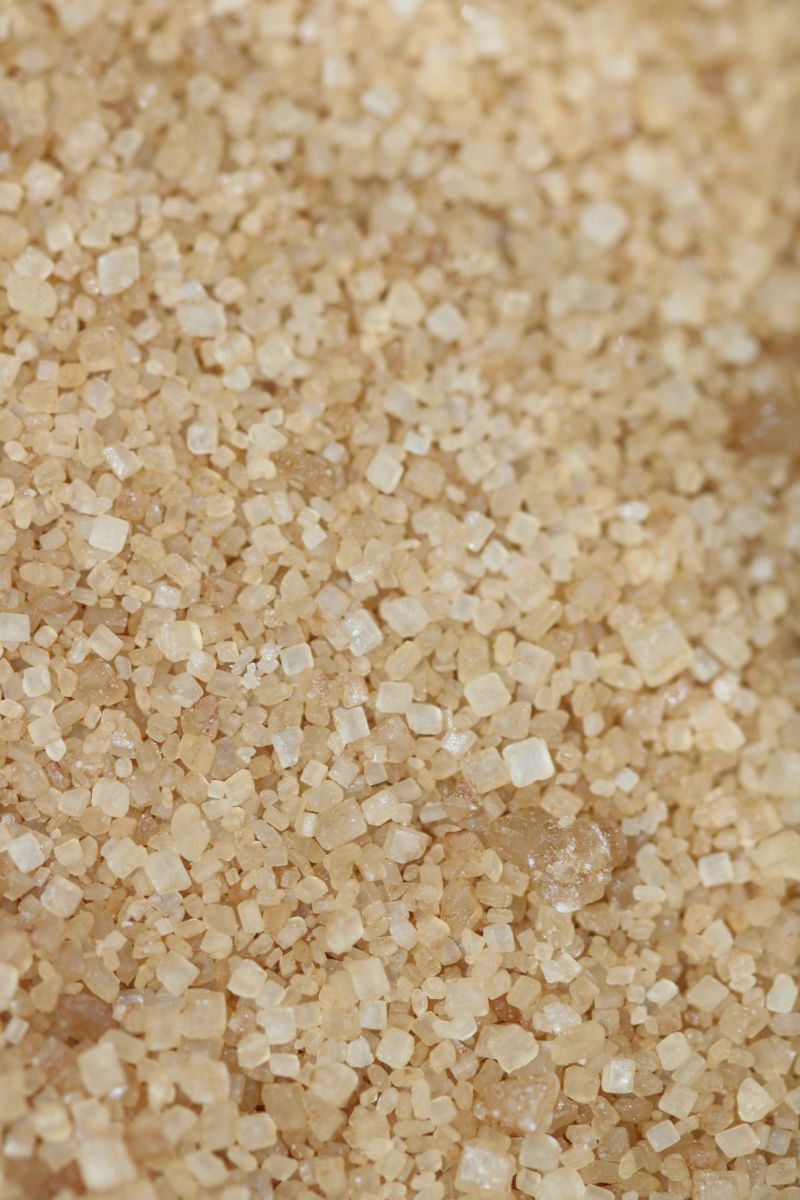Sweet like sugar: Dutch consumers are not alone in doubting the effectiveness of the sugar tax increase on soft drinks
While a new flat-rate tax increase has been announced for sugary drinks, feedback from consumers and lessons from the UK indicate that this measure is a missed opportunity. Consumers believe in the importance of decreasing sugar consumption, but they do not believe this measure is either fair or effective. From the smart sugar-tax in the UK we have learned that it is not the price increase, but rather the incentive for manufacturers to lower the sugar content of soft drinks, that has brought about sugar reduction in households. Recommendations follow.

The Dutch government recently announced an increase on the tax on ‘sugary’ drinks (Verbruiksbelasting). The measure is for a flat-rate tax on any non-alcoholic and non-dairy drink, regardless of their sugar content. The price increase covers fruit juices, soft drinks (including light or zero sugar versions), alcohol-free beers, and plant-based milk substitutes (with or without added sugars).
The rationale of this tax (Verbruiksbelasting) is that as drinks will become more expensive, people will be more likely to choose healthier option, namely water. The consumption tax on mineral water will be in fact be abolished starting January 1st 2024.
But will a price hike of a few cents[1] really deter Dutch consumers from drinking anything that is not water, tea, coffee, or milk, particularly if the only choice that is incentivized is for mineral water? As manufacturers pass the price increase onto the consumer, will they be incentivized to reduce the sugar content of their products?
We asked our online consumer community to consider this new measure.
A solution to an increasingly relevant problem
Most participants in our study believe that overweight in the Netherlands is a problem that needs to be addressed.[1]
“Because otherwise health will continue to deteriorate, and care will become more and more expensive.” Lieke, 38
“Because obesity leads to long-term health problems.” Eva, 28
But not all participants believe it is the government’s place to intervene in this issue. A small handful of participants believe that sugar consumption is an individual responsibility.
“I think obesity is an important problem, but there is no need to take specific measures for it. It is better to solve it together with a lifestyle aid and dietician.” Tiny, 70
A small price increase won’t make a dent
The vast majority of participants are not convinced that this small price increase will result in people consuming fewer sugary drinks. A few speak about a habit, others about addiction. Both are not seen as easy to get rid of with a measure that is seen as quite soft.
“Smaller increases don’t help, that’s more of a symbolic warning. sugar, alcohol, and nicotine….how many are addicted to those. A small increase really won’t keep them off that.” Iris, 53
“Everyone is used to what they eat and drink. Such a measure won’t affect that.” Mathijs, 32
This measure does not (only) target the consumers it aims for
Another criticism for this measure is that it disproportionately affects the poor. It is seen as punishment for consumers with tighter budgets, whereas consumers of all economic levels drink these drinks.
“I think this is not a fair and equitable measure, because these kinds of products are purchased in all walks of life, but in this case the lower-income people are ‘bullied’ with this.” Matthijs, 32
Other participants feel like they are being punished for the inability of others to keep their sugar intake under control.
“Because this is being introduced so that overweight people in particular take in less sugar. But the non-overweight group will be ‘disadvantaged’ by this, so not entirely fair.” Romy, 24
“The people who are not overweight who will still suffer from this price increase.” Linda, 42
This highlights the importance of communicating the benefits of the tax to anyone affected by it. In the case of this measure, it aims to benefit all consumers as they can all achieve better health outcomes with reduced sugar intake. This measure needs to escape its unintended framing of being an unfair punishment for people who do not struggle with overweight, or consumers with fewer economic means.
It is unfair because this is a money-grab from the government
There is a disconnect between what happens with the extra money gathered through this tax and how this will serve Dutch citizens.
“If the excess profit goes to the state, which is the case with tax, I also wonder if it is going to be used in the right places” Ina, 87
This is an opportunity for the government to funnel this extra income into programmes that encourage healthier lifestyle. Communicating this back to consumers gives an extra reason to support paying a little more for the times that they do ‘sin’.
Only fair if a healthy alternative becomes cheaper – but water doesn’t cut it
The Dutch measure will make mineral water cheaper by scrapping the tax on this product. This is in line with the recommendation of the RIVM to offer a healthy alternative.
But in many consumers’ eyes this is not a fair trade.
On the one hand, water does not substitute soft drinks or plant-based milk substitutes. People drink water to quench their thirst, but they drink soda when they want something special. They use almond milk in baking, with cereal, and in their coffee. Additionally, consumers believe that tapwater is already as good as free. As well as better for the environment.
“And what a consolation: consumption tax will be abolished for mineral water! I just drink water from the tap so what use is that to me? Much better for the environment too, tap water.” Fiona, 46
“In my opinion, the Netherlands has its clean tap water very well in order and I don’t see why tax on mineral water is going to make a positive contribution in encouraging healthier behaviour.” Bob, 38
To get consumers to latch off sugary drinks, they need to be encouraged to choose a better alternative. This does not have to be artificially sweetened soft drinks, but bottled water is not a good enough consolation prize.
Lessons from the sugar tax in the United Kingdom
What lessons can be learned from countries that have already applied similar taxes? There is evidence from the United Kingdom that their ‘smart’ sugar tax encouraged manufacturers to reformulate their drinks to contain less sugar. This directly reduced the amount of sugar consumed per household, as well as the number of childhood hospital admissions for carious tooth extractions.
The United Kingdom Soft Drinks Industry Levy (SDIL) is a levelled system – more sugar, more additional tax. Less sugar, as little as no additional tax. This tax incentivized manufacturers (and gave them time) to reformulate their recipes and reduce the amount of sugar (Scarborough et al., 2020). Estimations showed that the average amount of sugar consumed from soft drinks per person per week dropped by 19.2g and 12.9g, in 2018 and 2019 respectively (Allais, Enderli, Sassi, & Soler, 2023).
Another study (Rogers et al. 2023) found that the biggest benefits to oral health occured between the announcement of the tax and its implementation, in the two-year period when manufacturers made most of the recipe changes.
In other words, incentivizing manufacturers and giving them enough time to reduce the sugar in their drinks lead to less sugar consumption through soft drinks without negative influence on sales. With this new Dutch sugar tax, manufacturers are not incentivized to reduce their sugar content, and consumers are not incentivized to switch to sugar-free alternatives as both the regular and light/zero versions of soft drinks are taxed equally.
Recently, the RIVM studied the effects a ‘smart’, tiered, tax would have on sugar consumption in the Netherlands. They found that as a result of such a tax, “people are expected to buy 15 to 18 per cent (18 to 21 million kilograms) less sugar from non-alcoholic beverages”.
Therefore, to make a sugar tax a success, a fundamentally different approach to legislation is needed, is our conclusion. Acceptance among citizens is low and so are expectations about its effectiveness.
Our recommendations:
- Instate a tiered tax system that encourages manufacturers to reduce the sugar content of sodas rather than a flat tax that does not give consumers enough alternative options to choose from (besides water).
- Promote alternatives that are healthier but also realistic. In many situations when consumers usually drink soft drinks they are not willing to simply drink water. An in-between option that is more exciting than water needs to be available and encouraged.
- Frame the benefit of the measure in how it will affect everyone, not only a group of people. In this case, communicate how less sugar is good for overall health of anyone who drinks soft drinks, not only for people with overweight or obesity.
- Communicate what happens with the extra income collected by the government. This is particularly interesting if a fund is created to invest in projects related to healthy eating. Then consumers feel like at least the extra money they pay goes to something useful which is consistent with the goal of the tax.
Consumer data:
Fifty Dutch consumers in our conscious consumer community evaluated this policy on three aspects: their general attitudes toward the problem the policy targets (in this case overweight and obesity[3]), and the policy’s perceived fairness and perceived effectiveness. Perceived fairness is about how just and fair the measure is – for example by treating citizens equally, or not disadvantaging a specific group. Perceived effectiveness is about how likely the measure will achieve its intended aim, in this case reducing sugar intake of Dutch citizens. All three items have been shown to be strongest predictors of acceptance of intervention strategies for healthy food choices (Bos et al. 2013)
Footnotes
[1] The flat-rate tax will increase by €17,30 per 100L (from €8,83 to €26,13). For a glass of soft drink (~240 to 300 mL) this will be an increase of between €0.04 and €0.05.
[2,3] This is not the only problem the tax aims to address; however it is the issue that has been in focus when discussed by the National Institute for Public Health and the Environment (RIVM). Overall health and wellbeing are meant to increase by reducing sugar intake as high sugar consumption is linked to several health issues such as tooth decay and poor mental health.
Works Cited
Allais, O., Enderli, G., Sassi, F., & Soler, L. (2023). Effective policies to promote sugar reduction in soft drinks: lessons from a comparison of six European countries. European Journal of Public Health, 33(6), 1095–1101. https://doi.org/10.1093/eurpub/ckad157
Bos, C., Van Der Lans, I., Van Rijnsoever, F. J., & Van Trijp, J. (2013). Understanding consumer acceptance of intervention strategies for healthy food choices: a qualitative study. BMC Public Health, 13(1). https://doi.org/10.1186/1471-2458-13-1073
Rogers, N. T., Conway, D. I., Mytton, O., Roberts, C. H., Rutter, H., Sherriff, A., White, M., & Adams, J. (2023). Estimated impact of the UK soft drinks industry levy on childhood hospital admissions for carious tooth extractions: interrupted time series analysis. BMJ Nutrition, Prevention & Health, e000714. https://doi.org/10.1136/bmjnph-2023-000714
Scarborough, P., Adhikari, V., Harrington, R., Elhussein, A., Briggs, A., Rayner, M., Adams, J., Cummins, S., Penney, T. L., & White, M. (2020). Impact of the announcement and implementation of the UK Soft Drinks Industry Levy on sugar content, price, product size and number of available soft drinks in the UK, 2015-19: A controlled interrupted time series analysis. PLOS Medicine, 17(2), e1003025. https://doi.org/10.1371/journal.pmed.1003025
Vellinga, R., Van Steenbergen, E., Nawijn, E., & Van Bakel, M. (2020). Suikertaks: een vergelijking tussen drie Europese landen : Kenmerken en effecten van een belasting op suikerhoudende dranken, met overwegingen voor Nederland. Open Repository. https://doi.org/10.21945/rivm-2020-0112
We believe that understanding consumers is key to making the food system more sustainable. Successful innovation and impactful communication require a solid foundation of consumer insight.
We are the insights partner of choice for food companies and non-profits that aim to have a positive impact on society and our planet. Together we empower consumers to make food choices that are good for them as well as for the planet.
The Hague Tech - Waldorpstraat 5 - 2521CA - The Hague
(+31) (0)70 2042314 - Info@futureoffood.institute
Contact
Fill in this form and we'll be in touch shortly!
Newsletter
Do you want to receive a monthly dose of insights, opinions and events? Please subscribe to our newsletter.















